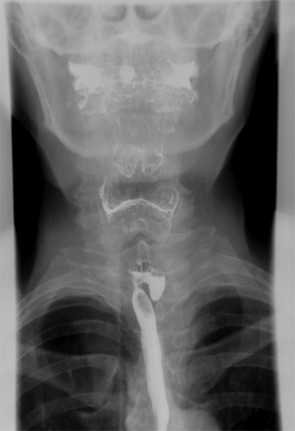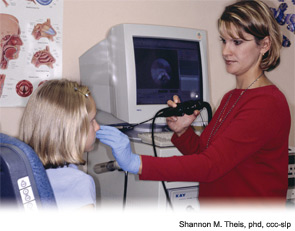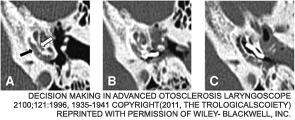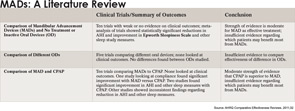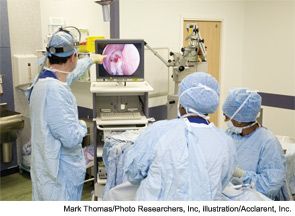A 78-year-old woman presented with a 10-year history of progressive dysphagia for solid foods and pills, with intermittent regurgitation of pills but not food. No aspiration or weight loss was reported. Her past medical history was significant for breast cancer, hypothyroidism and arthritis. No head and neck masses were appreciated. A modified barium swallow was obtained.
